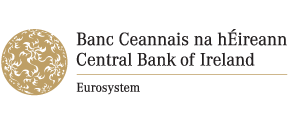The Central Bank of Ireland will be closely monitoring the watershed moment for the ETF industry earlier this month when the Securities and Exchange Commission (SEC) approved the first ETF that is not required to disclose its holdings daily.
The US regulator had been pushing back on the concept for over a decade however, on 8 April Precidian Investments received approval for its non-transparent active range, ActiveShares.
All eyes have now turned to the Central Bank of Ireland (CBI) to see what it will do in response. Last September, the Irish regulator, in its Discussion Paper 6 – Exchange Traded Funds, made no change to requirements for ETFs to provide daily portfolio disclosure as the rule provided “clarity” to market participants and enabled investors to monitor the underlying holdings.
At the time, the Irish regulator admitted some industry players were in favour of a more “nuanced” approach to the disclosure rules with asset managers providing the full portfolio to authorised participants (APs), instead of the whole market, in order to enable them to maintain tight spreads.
Evidently, it is important for asset managers continue to disclose their holdings daily to market makers so they can price the ETFs correctly however, the need for investors to see this is less pressing.
Long-term investors do not need to look at their investments daily and in practice, this does not occur, especially in the retail and wholesale markets.
Furthermore, the rules around daily disclosure is halting asset managers entering the ETF space and is therefore reducing competition and investor choice.
If active managers, especially in equities, have to reveal their holdings daily, they are concerned third parties will front-run their strategies which, in turn, will destroy the product’s value.
While from an investor’s perspective, if they are paying higher fees to get exposure to an asset class through an active ETF, then they will not want their asset manager’s secret sauce being exposed to the entire market.
The SEC’s move should be the catalyst that leads to regulation changes in Europe. The CBI’s judgement last September was more of a ‘wait-and-see’ move but this was because they may have been waiting for a decision to be made across the pond, instead of jumping into the deep end first.
ETF providers having to reveal their entire portfolio holdings daily to the market seems archaic and somewhat unnecessary. A change of heart around this rule from the CBI has the potential to fuel the next wave of the growth in the £862bn European ETF industry.



